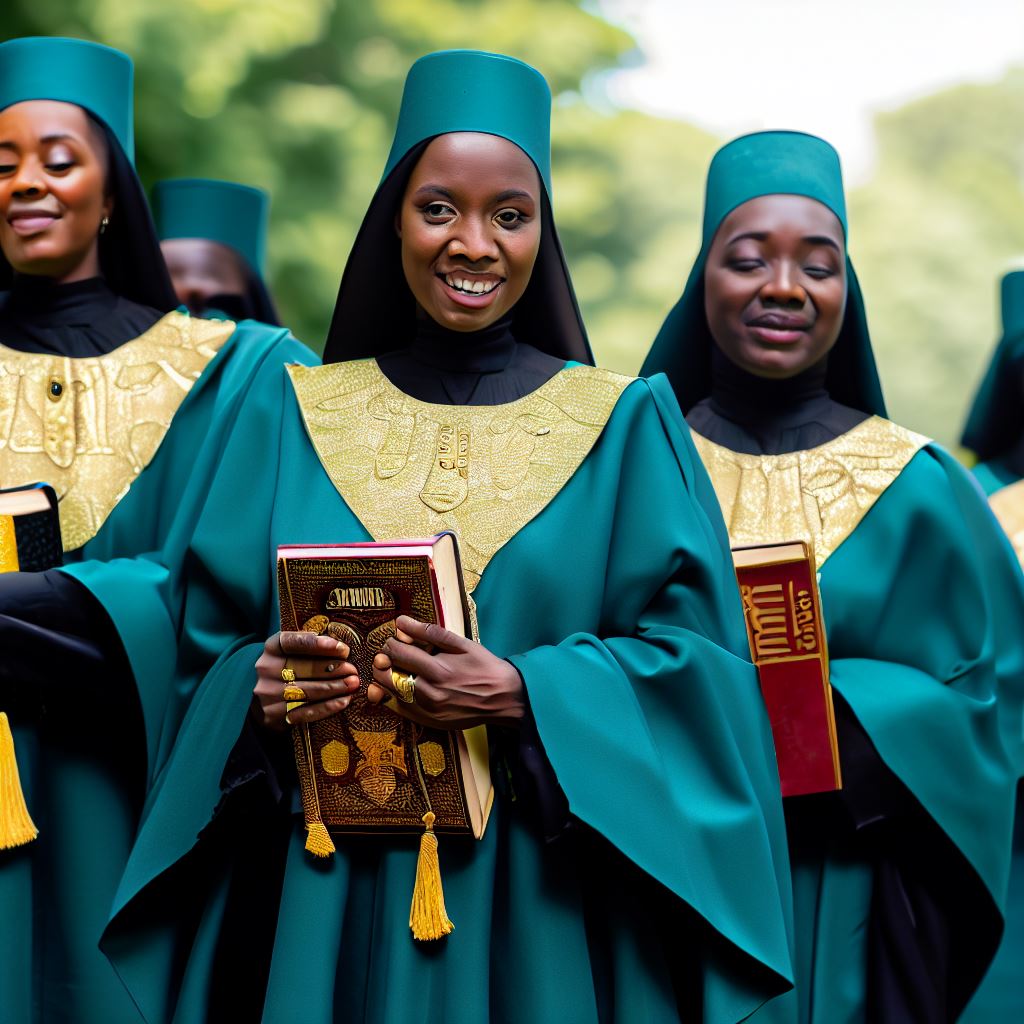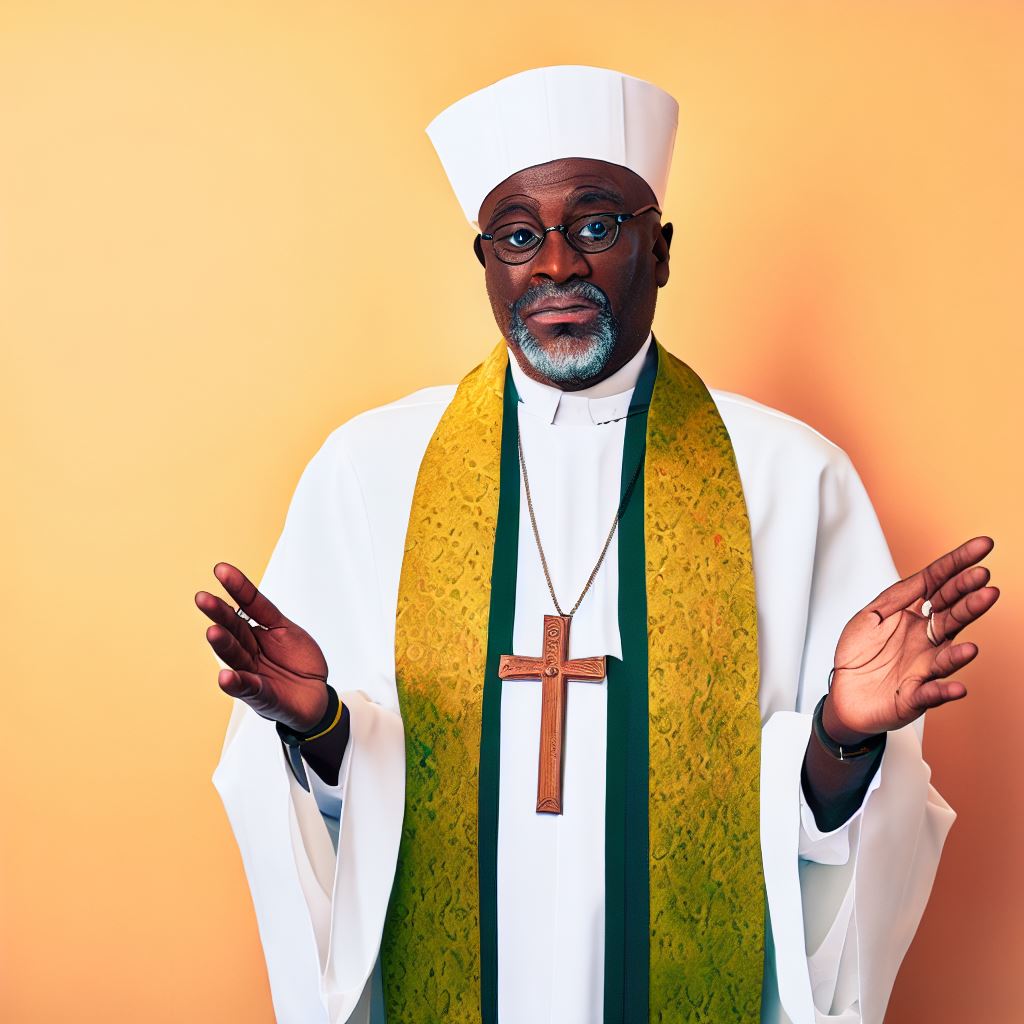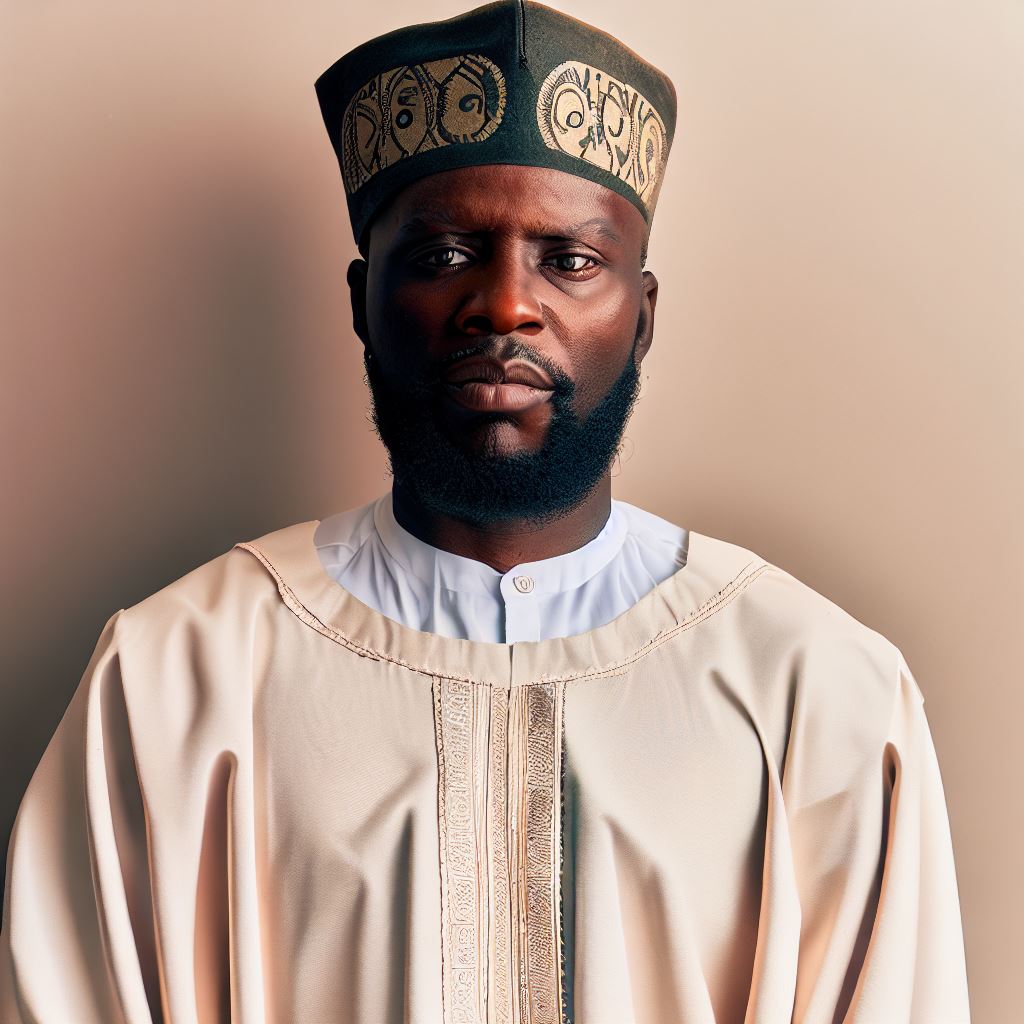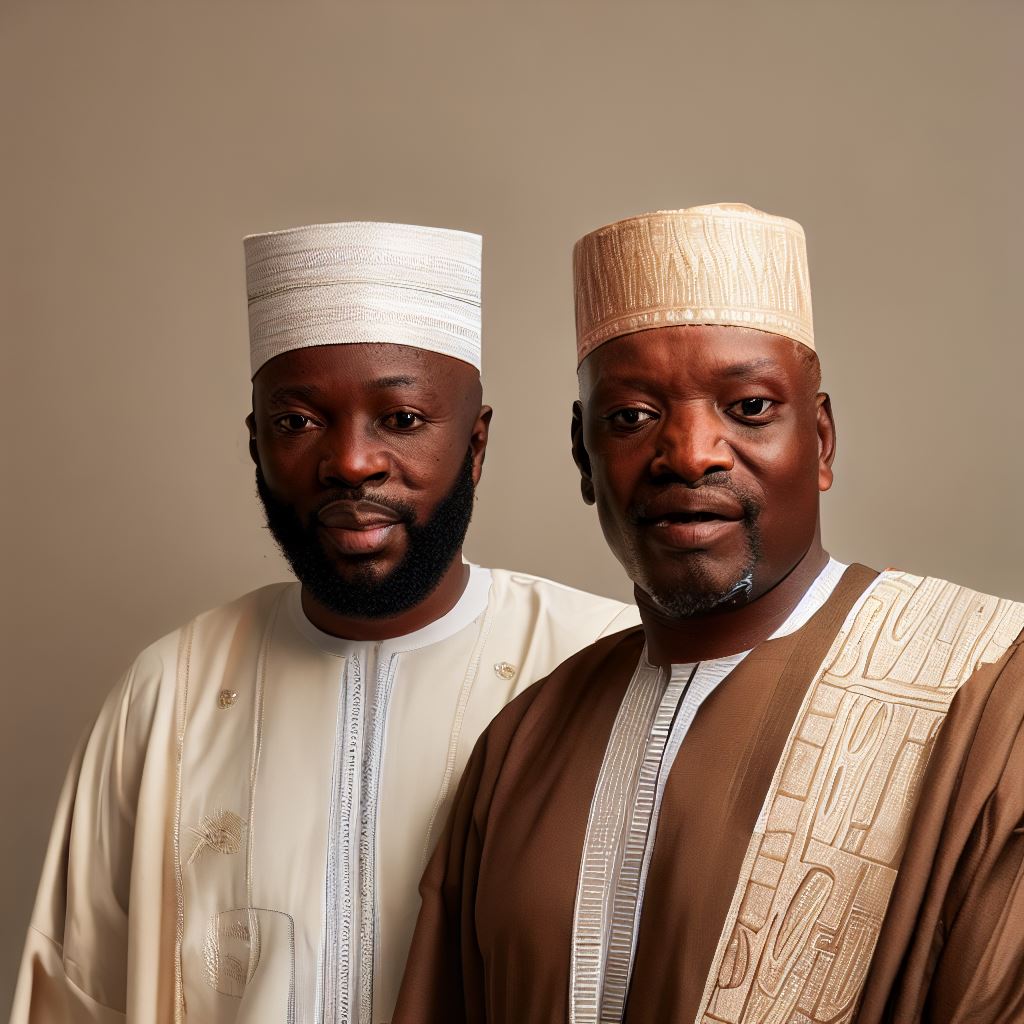Introduction
Women in Nigeria clergy play significant roles and hold responsibilities within the religious sphere.
Understanding the roles of women in Nigeria’s clergy is crucial for promoting gender equality in religious institutions and society at large.
This post will explore the various roles and responsibilities of women in Nigeria’s clergy, highlighting their contributions and addressing challenges they may face.
Historical Background
A. Brief overview of the history of religion in Nigeria
Nigeria has a rich and diverse religious history, with indigenous religions predating the arrival of Islam and Christianity.
Indigenous religions, such as Yoruba and Igbo, have their own distinct practices and beliefs.
Islam was introduced to Nigeria in the 11th century through trade contacts with North African Muslim communities.
Christianity arrived in Nigeria in the 15th century, primarily through the Portuguese explorers and later through British colonization.
B. Traditional gender roles in Nigerian society
Nigerian society has traditionally been patriarchal, with men holding dominant positions in various spheres of life, including religion.
Women were mostly limited to domestic and caregiving roles, with limited access to education and leadership positions.
The traditional gender roles placed restrictions on women’s ability to participate in religious activities and ascend to leadership roles.
Even within religious settings, women were often sidelined and deemed as subordinate to men.
C. Introduction of women to religious leadership positions
In recent decades, there has been a growing recognition of women’s contributions and capabilities in religious leadership.
Several religious denominations and organizations in Nigeria have started actively involving women in clergy roles.
Women are being ordained as pastors, priests, and even bishops in various Christian denominations.
Islamic organizations are also making efforts to empower women through education and leadership opportunities in religious matters.
The inclusion of women in religious leadership positions is gradually challenging traditional gender roles.
Women clergy are now actively participating in pastoral care, preaching, teaching, and decision-making within their religious communities.
Read: A Day in the Life of a Nigerian Priest: A True Account
Key Roles of Women in Nigeria’s Clergy
A. Preaching and Teaching
Women in Nigeria’s clergy play an active role in preaching and teaching the word of God to their congregations.
They have the ability to inspire and empower others through their words.
By taking on these key roles, women in Nigeria’s clergy are breaking barriers and stereotypes, establishing themselves as strong leaders and contributors to society.
Their active involvement in preaching and teaching allows them to share their knowledge and faith, promoting spiritual growth among their congregants.
They deliver sermons that resonate with people’s hearts and minds, motivating them to live a purposeful and fulfilling life.
B. Counseling and Guidance
Another crucial role of women in Nigeria’s clergy is providing counseling and guidance to individuals who seek spiritual support.
They offer advice and help people navigate through their personal struggles.
Furthermore, women in Nigeria’s clergy provide crucial counseling and guidance services.
They offer a comforting presence and a listening ear to those in need, helping them find solace and meaning in their lives.
Their advice is not only limited to spiritual matters but extends to various aspects of life, including relationships, career, and personal growth.
C. Serving as Role Models
Women in Nigeria’s clergy act as role models for young girls and women in the community.
They demonstrate strength, faith, and resilience, inspiring others to follow their path and pursue their calling.
As role models, women in Nigeria’s clergy inspire others, especially young girls and women, to strive for excellence and pursue their dreams.
They prove that gender should not limit one’s opportunities and that women are capable of not only achieving but excelling in positions of leadership and authority.
D. Community Outreach and Social Work
Women in Nigeria’s clergy actively engage in community outreach programs and social work activities.
They work towards addressing social issues, such as poverty, education, and healthcare, to improve the overall well-being of their communities.
Additionally, women in Nigeria’s clergy actively engage in community outreach and social work.
They recognize the importance of addressing societal issues and work towards bringing positive change to their communities.
Whether it’s organizing health camps, advocating for women’s rights, or providing education to underprivileged children, they tirelessly work towards creating a better society for all.
In essence, women in Nigeria’s clergy play vital roles in preaching, teaching, counseling, guidance, serving as role models, and engaging in community outreach and social work.
Their active involvement and contribution to society break gender stereotypes and empower others to embrace their true potential.
Women in Nigeria’s clergy continue to make significant impacts, inspiring and transforming lives through their faith and dedication.
Read: Client Retention Strategies for Beauty Therapists in Nigeria
Challenges Faced by Women in Nigeria’s Clergy
A. Patriarchal attitudes and cultural barriers
- Women in Nigeria’s clergy often face patriarchal attitudes and cultural barriers.
- These attitudes and barriers stem from traditional beliefs and gender norms.
- Many people still hold the belief that men are more suited for leadership roles.
- Women who challenge these norms may face resistance and discrimination.
- They may be seen as going against the established order and face backlash from their communities.
- These patriarchal attitudes limit the growth and opportunities for women in the clergy.
- Female clergy members may struggle to gain acceptance and legitimacy in their roles.
- They have to constantly prove themselves and overcome the biases held against them.
- Patriarchal attitudes also restrict the types of positions women can hold within the clergy.
- Traditional gender roles often confine women to supporting roles rather than leadership positions.
B. Resistance from male counterparts and congregation members
- Women in Nigeria’s clergy also face resistance from their male counterparts and congregation members.
- Some male clergy members may feel threatened by the increasing presence of women in leadership roles.
- They may try to undermine or exclude women from decision-making processes.
- Male congregation members may struggle to accept women as their spiritual leaders.
- They may question their authority or challenge their theological interpretations.
- This resistance can create a hostile environment for women in the clergy.
- Women may constantly have to prove their worth and competence to gain respect.
- They may face opposition and barriers when trying to implement new ideas or initiatives.
- It requires strength and determination for women to navigate through these challenges.
C. Balancing religious duties with family responsibilities
- One of the significant challenges faced by women in Nigeria’s clergy is balancing their religious duties with family responsibilities.
- These women are often expected to be caregivers and homemakers in addition to their clergy roles.
- They face pressure to fulfill traditional gender roles and meet societal expectations.
- Juggling their ministry commitments while also being present for their families can be overwhelming.
- Women may struggle with guilt or feelings of inadequacy when they cannot give equal attention to both.
- They have to find ways to prioritize their time and establish boundaries to avoid burnout.
- Support from their families and understanding within their congregation becomes crucial.
- Efforts to challenge traditional gender roles may also face resistance from extended family members.
- These challenges highlight the need for societal and cultural shifts to support women in the clergy.
- Recognition of women’s equal capabilities and contributions is necessary to overcome these obstacles.
Women in Nigeria’s clergy face formidable challenges including patriarchal attitudes and cultural barriers, resistance from male counterparts and congregation members, and the struggle to balance religious duties with family responsibilities.
These obstacles restrict the growth and opportunities for women in leadership positions within the clergy.
Overcoming these challenges requires societal and cultural shifts that recognize the equal capabilities and contributions of women in religious leadership.
Read: Continuing Education: Courses for Beauty Therapists in Nigeria

Success Stories and Notable Figures
A. Accomplished women in Nigeria’s clergy
- Reverend Sister Agnes: A trailblazer in Nigeria’s clergy, Reverend Sister Agnes has dedicated her life to serving God and the community.
- Bishop Esther: Bishop Esther’s unwavering faith and leadership have made her a respected figure in Nigeria’s religious landscape.
- Pastor Ada: Known for her powerful sermons and compassionate nature, Pastor Ada has touched the lives of many in her congregation.
- Evangelist Grace: Evangelist Grace’s evangelistic efforts have led to numerous conversions and spiritual transformations in Nigeria.
- Prophetess Cynthia: With her prophetic gift, Prophetess Cynthia has become a trusted spiritual guide for many seeking divine intervention.
B. Their achievements and impact
- Reverend Sister Agnes, through her extensive charitable work, has provided education and healthcare to underprivileged communities.
- Bishop Esther has empowered women in the clergy, breaking gender barriers and promoting gender equality within religious institutions.
- Pastor Ada’s ministry has witnessed remarkable growth, with her church becoming a haven for the marginalized and broken-hearted.
- Evangelist Grace’s powerful preaching has brought hope to countless individuals, helping them find solace in their faith.
- Prophetess Cynthia’s accurate prophecies have restored faith and brought spiritual revival to struggling congregations.
C. Inspiration and motivation for aspiring female clergy members
- These women’s accomplishments prove that gender is not a limitation in Nigeria’s clergy, inspiring aspiring female leaders.
- Their achievements remind us that dedication, faith, and perseverance can overcome any obstacle in the pursuit of one’s calling.
- Aspiring female clergy members can draw inspiration from these notable figures and strive to make a lasting impact in their own communities.
- Their success stories serve as a testament to the transformative power of God’s calling and the influence of women in religious leadership.
- By embracing their calling, aspiring female clergy members have the opportunity to shape Nigeria’s religious landscape and impact countless lives.
In review, Nigeria’s clergy boasts remarkable women who have defied societal norms and made a significant impact.
Reverend Sister Agnes, Bishop Esther, Pastor Ada, Evangelist Grace, and Prophetess Cynthia are all exemplary figures, highlighting how women’s contributions transcend traditional gender roles.
Their achievements inspire aspiring female clergy members to overcome obstacles, make a difference, and seize their calling with passion and determination.
Read: Marketing Strategies for Real Estate Agents in Nigeria
Efforts and Initiatives Promoting Women’s Involvement in the Clergy
A. Organizations and associations advocating for gender equality
Women in Ministry Network Nigeria aims to promote the visibility and inclusion of women in church leadership positions.
The Association of Nigerian Female Theologians encourages women to pursue theological education and take active roles in ministry.
Women Arise for Change Initiative empowers women in various aspects of life, including religious leadership and advocacy for gender equality.
Nigerian Association of Women in Clergy supports women clergy members by creating a network for collaboration and mentorship.
Gender Equality Movement Nigeria works towards establishing gender equality in all sectors, including religious institutions.
Efforts and initiatives promoting women’s involvement in the clergy play a vital role in achieving gender equality and shaping a more inclusive religious landscape in Nigeria.
Organizations and associations, such as Women in Ministry Network Nigeria and the Association of Nigerian Female Theologians, are at the forefront of advocating for gender equality within religious institutions.
Through their work, they aim to increase the visibility and inclusion of women in church leadership positions, challenging traditional norms and beliefs.
B. Training programs and resources for women in religious leadership roles
The Institute for Women in Ministry equips women with necessary skills and knowledge for effective leadership in religious contexts.
The Leadership Training Program for Women in Ministry provides training on pastoral care, sermon preparation, and organizational management.
The Women in Church Leadership Program offers workshops and seminars aimed at empowering women in religious leadership roles.
Women’s Ministries International provides resources, such as books and online courses, to support women in their leadership journey.
The Center for Women in Church Leadership offers mentoring, conferences, and resources tailored to the specific needs of women leaders.
In addition to these organizations, various training programs and resources are available to equip women with the necessary skills and knowledge for effective leadership in religious contexts.
The Institute for Women in Ministry and the Leadership Training Program for Women in Ministry provide training on pastoral care, sermon preparation, and organizational management.
These programs empower women to overcome barriers and excel in their roles as religious leaders.
C. Government policies and legislation supporting women’s rights in the religious sector
Furthermore, government policies and legislation play a crucial role in supporting women’s rights in the religious sector.
The National Gender Policy in Nigeria recognizes the importance of gender equality and women’s participation in all sectors, including religion.
The Matrimonial Causes Act protects women’s rights in marriage, ensuring fair treatment and empowering them to pursue their religious aspirations.
The Violence Against Persons (Prohibition) Act addresses various forms of violence against women, including within religious contexts, promoting a safe and inclusive environment for women in the clergy.
The Religious Discrimination (Prohibition) Bill aims to eliminate discrimination based on gender and promote equal opportunities for women in religious institutions.
This bill is a significant step towards fostering gender equality within religious spaces and ensuring fair representation of women in leadership positions.
Additionally, the National Policy on Religion and Education emphasizes inclusivity and equal participation of women in religious education and leadership.
This policy strives to create an enabling environment where women can actively engage in religious discourse and decision-making processes.
In general, efforts and initiatives promoting women’s involvement in the clergy are essential for achieving gender equality and empowering women in Nigeria.
Organizations, training programs, resources, and government policies all contribute to creating an inclusive religious landscape where women can thrive as religious leaders.
By advocating for gender equality, providing training opportunities, and enacting supportive legislation, Nigeria can continue its journey towards a more equitable society where women play significant roles in the clergy.
Discover More: Supporting Youth: The Role of Nigeria’s Clergy
Future Implications and Possibilities
A. Potential for increased representation of women in Nigeria’s clergy
- As awareness grows, more women may be inspired to enter the clergy.
- Expanded opportunities for women in religious leadership can lead to a more inclusive society.
- Increased representation of women can challenge patriarchal norms within religious institutions.
- Women in the clergy can provide unique perspectives and spiritual guidance to their congregations.
B. Benefits of gender diversity in religious leadership
- Gender diversity in religious leadership promotes a more balanced and holistic approach to spirituality.
- Women clergy can serve as role models and mentors for other women in the community.
- Gender diversity within clergy can address the specific needs and concerns of women within religious practices.
- Multiple perspectives result in more comprehensive decision-making processes within religious organizations.
C. Encouraging young girls and women to pursue careers in the clergy
- Providing educational programs and scholarships targeted towards young girls interested in religious leadership.
- Promoting positive portrayals of women in religious leadership in media and popular culture.
- Organizing mentorship programs where young women can learn from experienced female clergy members.
- Raising awareness about the various career paths and opportunities within the clergy for women.
By creating an environment that supports and encourages women in the clergy, Nigeria can experience a shift towards gender equality within religious institutions.
The potential for increased representation can bring about significant changes in religious practices and pave the way for a more diverse and inclusive society.
Conclusion
Women in Nigeria’s clergy have been able to take on various roles and responsibilities within religious institutions. They have become pastors, priests, and even bishops.
This is important as it helps challenge gender norms and provides representation for women in positions of power and leadership.
It also allows for the inclusion of diverse perspectives and experiences in religious practices.
It is crucial to acknowledge the strides that have been made towards gender equality in Nigeria’s clergy while also recognizing the work that still needs to be done.
Support and encouragement should be given to women who aspire to hold leadership positions in religious institutions.
Women in Nigeria’s clergy have made significant progress in breaking barriers and contributing to religious institutions.
Their roles and responsibilities offer an opportunity for gender equality and diversity within these institutions.
However, it is important to continue advocating for and supporting women in their pursuit of leadership positions, ensuring that all genders have an equal opportunity to serve and contribute to religious practices in Nigeria.
Publish Your Professional Profile, Business or Brand
Showcase your expertise, gain trust, and boost visibility instantly on Professions.ng.
Publish Now



